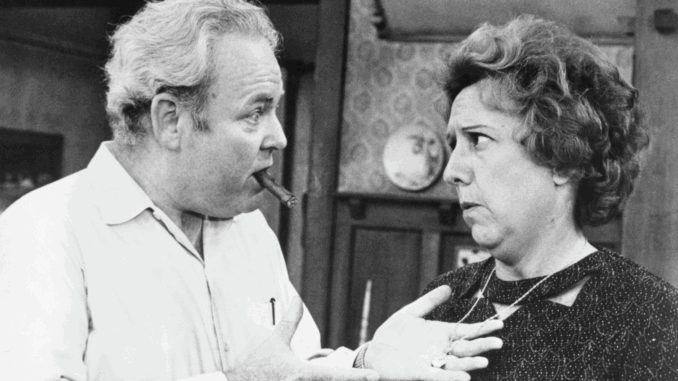
All in the Family wasn’t just a sitcom—it was a battleground. But the front line wasn’t in Vietnam or Washington—it was at the Bunker family’s dining table in Queens. That table, modest and brown, bore witness to some of the most groundbreaking, uncomfortable, and unforgettable conversations ever aired on American television.
Every week, viewers tuned in not just for laughs, but for lessons. Michael and Gloria represented the rising wave of youth activism and progressive ideals. Archie, in contrast, clung to tradition, often misinformed and occasionally offensive—but always willing to argue. Edith, sweet and soft-spoken, was often the heart that softened every harsh word.
These weren’t just characters—they were stand-ins for a divided nation.
What made these debates work was that they weren’t neatly resolved. No one delivered a moral of the story in the final minute. Sometimes Archie “won,” other times Michael did—but more often, the discussion itself was the point. All in the Family didn’t provide answers; it provided a forum.
The dinner table was America’s stage, and Norman Lear’s writing reminded us that uncomfortable conversations are often the most important ones. In an age of streaming fluff and reality noise, All in the Family stands out as a show that believed its audience could think, reflect, and even change.